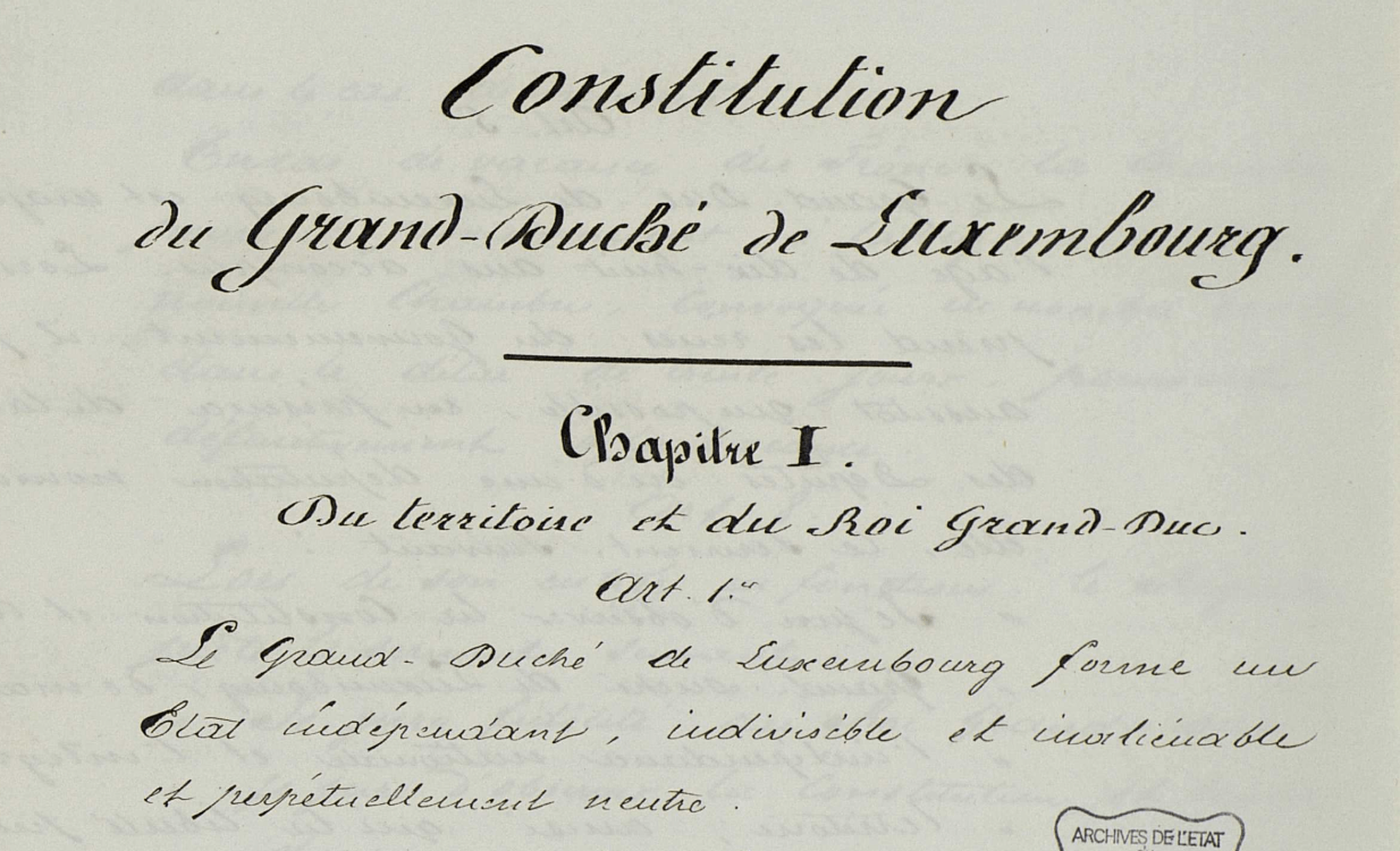Luxembourg is taking a significant step forward by putting into effect its revised constitution on July 1st, 2023.
On July 1st, 2023, Luxembourg’s revised Constitution came into effect, marking the culmination of about 15 years of work and debates. The revisions led to the final vote of the four chapters – “Justice”, “Organization of the State”, “Rights and Freedoms”, and “Chamber of Deputies and Council of State” – last December.
Key Changes in the New Constitution
One of the most tangible changes in the revised constitution is the introduction of the citizen legislative initiative. No longer exclusive to deputies or the government, law proposals (propositions de loi) can now be submitted by 125 citizens, provided they are supported by at least 12,500 voters. This initiative is open only to Luxembourgish adults who can vote in legislative elections. These proposals will be treated like any other law proposition (equivalent to a private member’s bill in the US). However, the final decision always rests with the deputies who vote on the law. This change signifies a significant leap forward from the existing petitions, which require 4,500 signatures from adult Luxembourg citizens or residents and which only compels a debate in parliament.
The new constitution also enshrines new fundamental rights and public freedoms, such as the prohibition of torture, the inviolability of human dignity, the right to physical and mental integrity, the right to found a family, the interest of the child, the protection of personal data, and the right to asylum. Added to these are “constitutional value objectives” such as promoting social dialogue, the right to housing, freedom of scientific research, environmental protection, and access to culture. These objectives impose an obligation on every government to give these issues high priority. The new constitution also recognizes that animals are sentient beings.
Symbolic Changes
While these changes may not revolutionize the daily lives of the Luxembourgish people, they indeed strengthen the country’s identity. The revised constitution recognizes Luxembourgish as the country’s language alongside German and French, the official administrative languages. While the previous constitution simply stated that “the law regulates the use of languages,” the new Constitution designates Luxembourgish as “the language of the Grand Duchy of Luxembourg.” Although this does not change the status quo, its inclusion in the constitution symbolizes a strong identification factor for the country.
Likewise, the new constitution incorporates the national flag, national anthem, and European integration. While these might not significantly alter the life of citizens, they reinforce the nation’s identity and offer a strong sense of belonging.
Justice and Oath of Allegiance
The revised constitution also touches on justice. It enshrines the independence of the justice system, reasonable trial periods, and the presumption of innocence. These changes are more than symbolic; they are backed by a newly created National Council of Justice that ensures these objectives are not only written on paper but are also respected. Previously, justice was carried out in the name of the Grand Duke, whereas now justice is carried out in respect of the constitution.
Moreover, the revised constitution changes the oath of allegiance. Deputies and ministers now swear to respect the constitution and the laws of the country, not the Grand Duke, when starting their function. This is a substantial change that further separates the powers of the Luxembourgish state.
The new Constitution in fact brings significant modifications to the role of the Grand Duke. While remaining the head of state and a symbol of unity and independence, the Grand Duke’s powers and functions have been redefined. The sovereign issues regulations necessary for the execution of laws, which must be countersigned by a government member assuming responsibility for them. This change clarifies the distribution of powers within the executive branch and ensures accountability. The new constitution is also the first to directly mention the role of Prime Minister.
Conclusion
In conclusion, Luxembourg’s revised constitution represents a milestone for the nation and its citizens. It embodies the identity of the country, enshrines new rights and freedoms, and offers its citizens a greater say in the legislative process. It is a testament to the democratic spirit of the nation, paving the way for a future that respects the will of its people, protects their rights, and acknowledges their identity.

